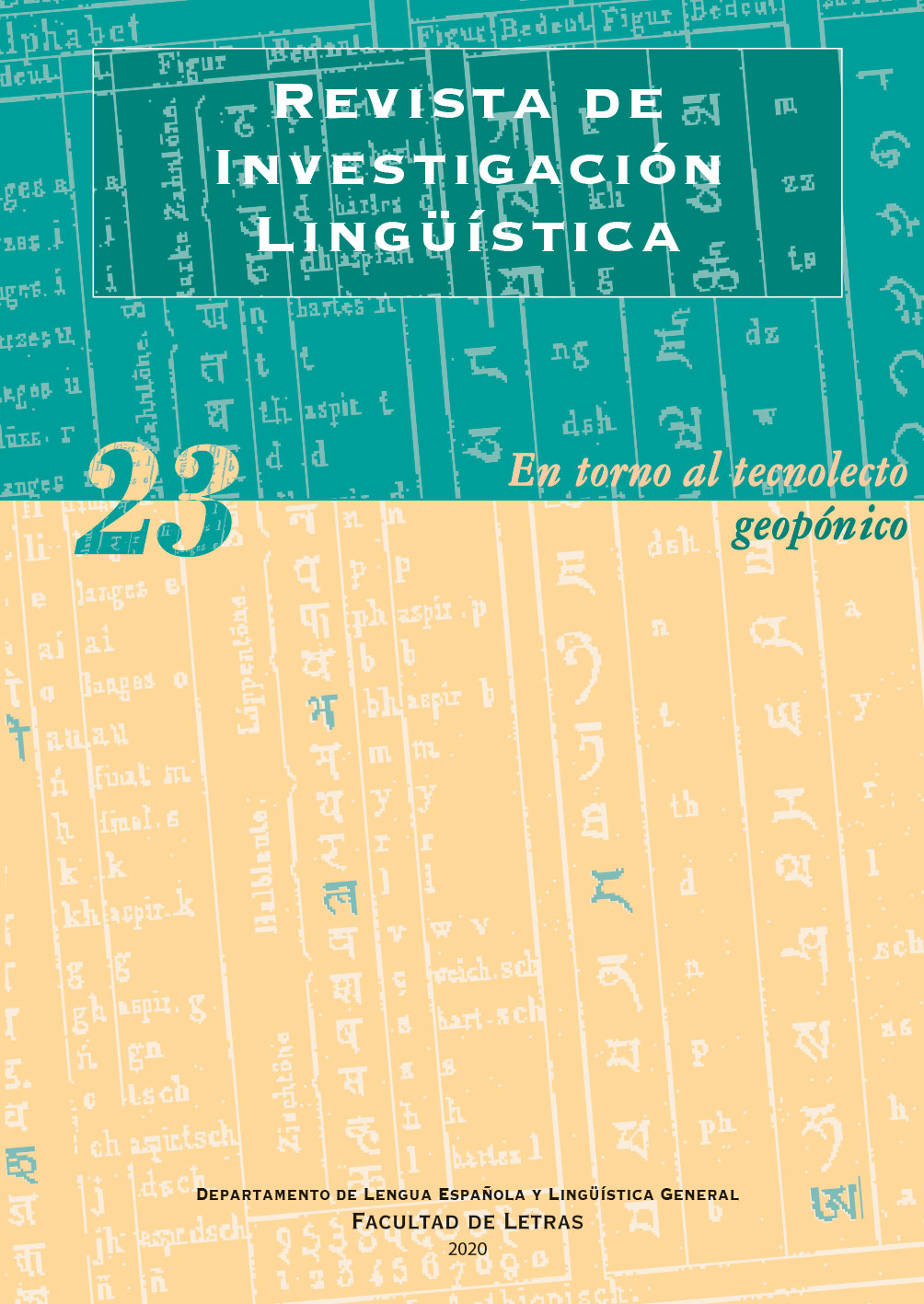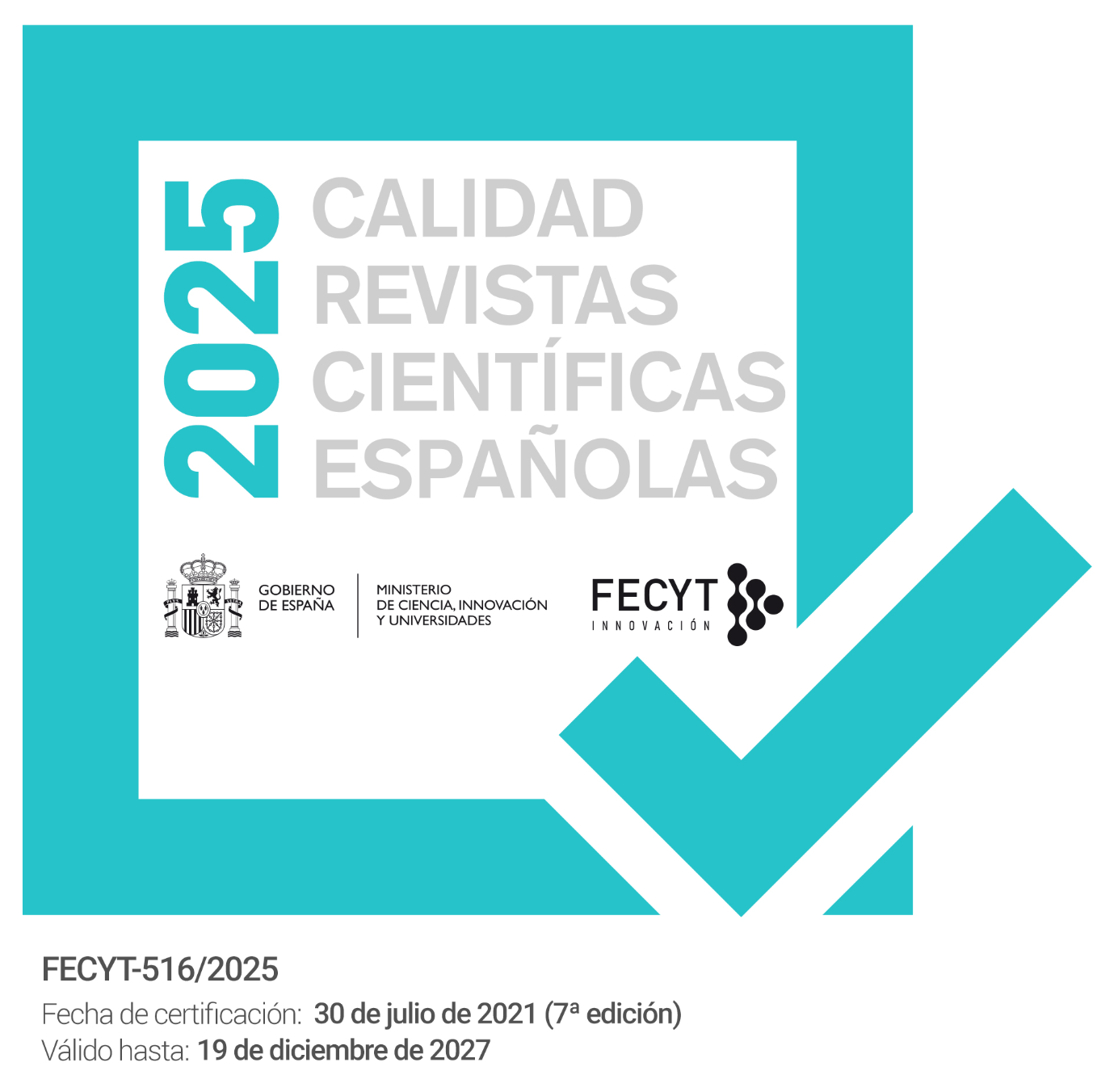Cynisism and kynicism: two attitudes that lead to the comprehension of languages in Catalonia
Abstract
Cynicism and kynicism are antithetical attitudes which can discursively materialize through the opinion degree of the epistemic modality. In this paper, we propose four archetypical statements representing several opinions regarding the suitability and inconvenience of Spanish and Catalan languages about how they compete to monopolize sociolinguistic domains and uses in Catalonia. Cynical or kynical components are made clear in these sentences. These elements, which favour one or another language, do not appear in isolation, but there is a struggle between both attitudes in which one of them nuance the effectiveness of the other one. We take the Critical Discourse Analysis since the ideologies which reproduce the power relations between languages reveal themselves discursively. Through this perspective, we divide the sentences into ideologically separated segments and we point out which of them must be attacked to build favourable linguistic ideologies to the minoritized language.
Downloads
-
Abstract549
-
PDF (Español (España))1133
References
Aijón Oliva, Miguel A. y María J. Serrano (2010): «El hablante en su discurso: expresión y omisión del sujeto de creo», Oralia: Análisis del discurso oral, 13, pp. 7-38.
Allan, Julie (2004): «The aesthetics of disability as a productive ideology», en Linda Ware (ed.), Ideology and the politics of (in)exclusión, Nueva York, Peter Lang Publishing, pp. 32-45.
Arndt, Hans (1987): «Speech functions, cooperation and competition in dialogue», en Conference on Language and Power, Bellagio, Italia.
Bastardas, Albert (1986): The Relation Between Linguistic Context, Behaviour and Competence : The Second Generation of Castilian-speaking Immigrants in Non-metropolitan Catalonia, Quebec, International Center for Research of Bilingualism.
Benveniste, Émile (1966): Problèmes de linguistique genérale, vol. I., París, Gallimard.
Boix, Emili (1993): Triar no és trahir. Identitat i llengua en els joves de Barcelona, Barcelona, Edicions 62.
Boix-Fuster, Emili y Carles de Rosselló (2003): «Les mentalitats lingüístiques de l’estudiantat de la Universitat de Barcelona (2002)», investigación no publicada y encargada por el Vicerrector de Política Lingüística i Relacións Institucionals de la Universitat de Barcelona.
Bretxa, Vanessa y Xavier Vila i Moreno (2012): «Els canvis sociolingüístics en el pas de primària a secundària: el projecte RESOL a la ciutat de Mataró», Treballs de Sociolingüística Catalana, 22, pp. 93-118.
Calsamiglia, Helena y Amparo Tusón (1980): «Ús i alternança de llengües en grups de joves de Barcelona: Sant Andreu del Palomar», Treballs de Sociolingüística Catalana, 3, pp. 11-82.
Comesaña, Susana M. (2002): «Los verbos de conocimiento en español», Verba, 29, pp. 243-260.
De Saeger, Bram (2006): «Evidencialidad y modalidad epistémica en los verbos de actitud proposicional en español», Interlingüística, 17, pp. 268-277.
De Saeger, Bram (2006): «Evidencialidad y modalidad epistémica en los verbos de actitud proposicional en español», Interlingüística, 17, pp. 268-277.
Fairclough, Norman (2003): Analysing discourse: Textual analysis for social research, Londres, Routledge.
Fernández, María (2013): «El Constitucional avala que el catalán no se exija para opositar en Baleares», El País. En línea: https://elpais.com/politica/2013/10/02/actualidad/1380706497_035916.html [13/08/2019].
Halliday, Michael y Christian Matthiessen (2014): Halliday’s introduction to functional grammar, Londres, Routledge.
Iglésias, Narcís (2019): «Language Policies in Contemporary Catalonia: A History of Linguistic and Political Ideas», en Pompeu Casanovas, Montserrat Corretger y Vicent Salvador (eds.), The Rise of Catalan Identity: Social Commitment and Political Engagement in the Twentieth Century, Cham, Springer, pp. 79-105.
Institut d’Estadística de Catalunya (2019): Enquesta d’usos lingüístics de la població 2018, Barcelona, Generalitat de Catalunya.
Laserna, Mario (1985): «La teoría de la verdad en Kant», Ideas y Valores, 34 (66-67), pp. 21-36.
LLEI 12/2009, del 10 de juliol, d’educació. Diari Oficial de la Generalitat de Catalunya, núm. 5422, de 16 de julio de 2009.
Mar-Molinero, Clare (1994): «The politics of language: Spain’s minority languages», CLE Working Papers, 3, pp. 106-113.
Otaola Olano, Concepción (1988): «La modalidad (con especial referencia a la lengua española)», Revista de Filología Española, 68 (1/2), pp. 97-117.
Pinto Pajares, Daniel (2018): Representaciones ideológicas de las lenguas: análisis comparativo de las ideologías lingüísticas en las clases altas gallega y catalana. Tesis de doctorado. Vigo: Universidade de Vigo.
Shabad, Goldie y Richard Gunther (1982): «Language, nationalism, and political conflict in Spain», Comparative Politics, 14 (4), pp. 443-477.
Sloderdjd, Peter (1989): Crítica de la razón cínica, Madrid, Taurus.
Van Dijk, Teun A. (2006): «Ideology and discourse analysis. Journal of Political Ideologies», 11 (2), pp. 115-140.
Van Dijk, Teun A. (2004): «Discurso y dominación», Grandes Conferencias en la Facultad de Ciencias Humanas, 4, pp. 5-28.
Van Dijk, Teun A. (2001): «Multidisciplinary CDA: A plea for diversity», en Ruth Wodak, y Michael Meyer (eds.), Methods of critical discouse analysis, Londres, SAGE, pp. 95-120.
Wodak, Ruth et al. (2009): The Discursive Construction of National Identity, Edimburgo, Edinburgh University Press.
Copyright (c) 2021 Journal of Linguistic Research

This work is licensed under a Creative Commons Attribution-NonCommercial-NoDerivatives 4.0 International License.
The works published in this magazine are subject to the following terms:
1. The Publications Service of the University of Murcia (the publisher) preserves the economic rights (copyright) of the published works, and favors and allows the reuse of same under the license of use indicated in point 2.
2. The papers are published in the electronic edition of the magazine under a Creative Commons Attribution-NonCommercial-NoDerivative 3.0 Spain license (legal text). Papers may be copied, used, disseminated, transmitted and publicly exhibited if the following requirements are met: i) The authorship and the original source of its publication (magazine, editorial and URL of the work) must be cited; ii) The works cannot be used for commercial purposes; iii) The existence and specifications of this user license must be explicitly mentioned.
3. Self-archiving conditions. Authors can electronically disseminate pre-print versions (version before being evaluated) and / or post-print versions (version evaluated and accepted for publication). This makes possible its circulation and diffusion earlier and with it a possible increase in its citation and reach among the academic community. RoMEO color: green.










